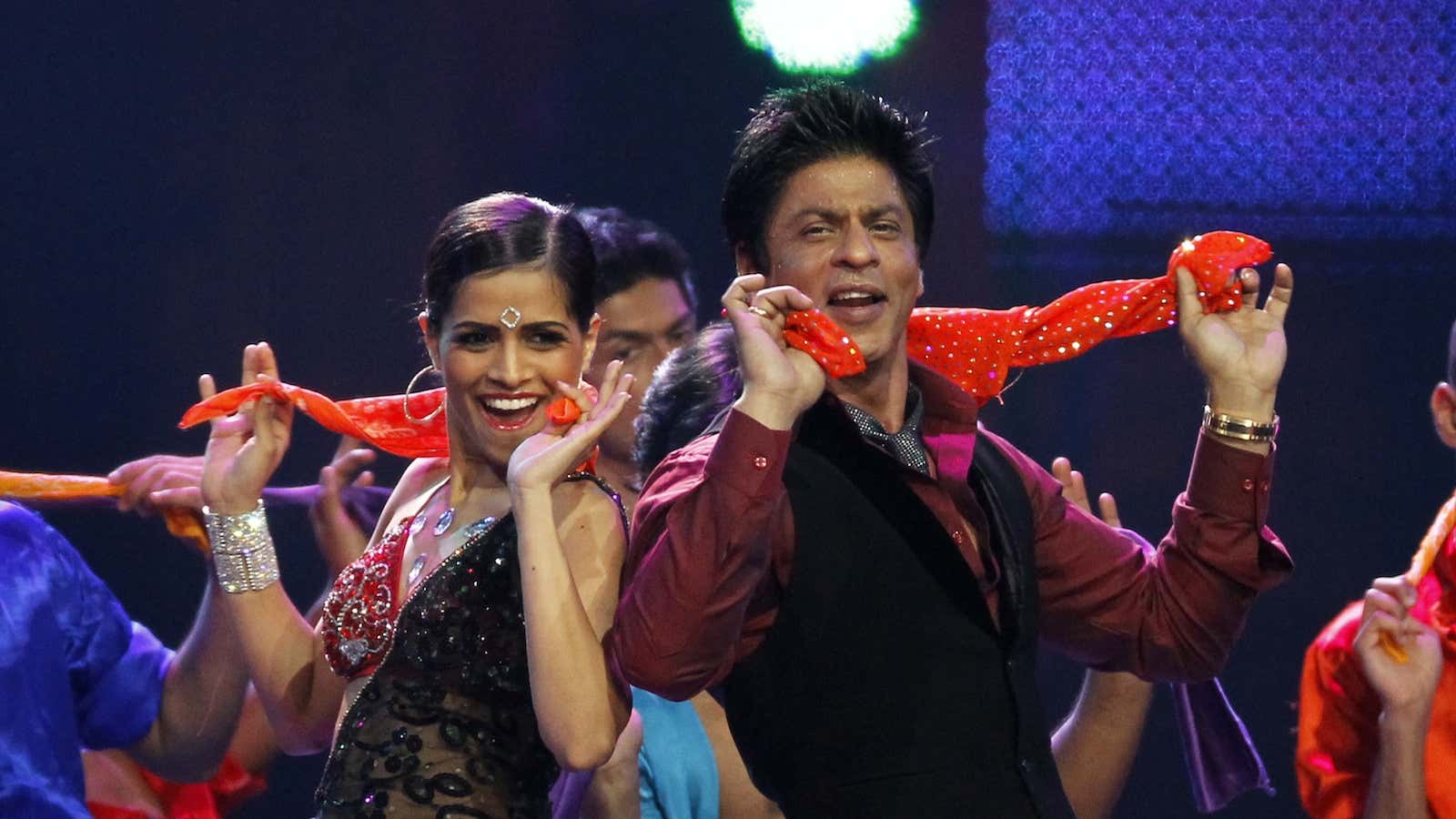Shah Rukh Khan doesn’t care what the critics say. And why should he? His new film Happy New Year, which opened on Diwali, has already grossed Rs108.86 crore ($17.8 million), becoming the biggest opening ever for a Bollywood film in India.
“I respect their views,” Khan said of his critics over the weekend. “But I don’t make films for such a niche audience of five to seven people. I try to make films for larger spectrum of people.”
But a few weeks from now, Khan would do well to think differently. One year shy of turning 50, Khan needs to think harder about what he is doing with his life, his career, his influence. It is the only way he can compensate for a sorry, parochial performance in Happy New Year.
I have heard Khan speak many times, and have even interviewed him. There’s no denying he is an intelligent man. But how does someone like him compromise all his intelligence to produce and star in a film like HNY that offends women, gays, and Parsis in so many ways. With a script that goes in so many different directions, it quickly loses its purpose (other than to rake in big, big bucks).
And that is an apt metaphor for the recent journey of Shahrukh Khan, the world’s second richest actor.
But once, there was a Khan who agreed to act in a Swades (2004) and then Chak De India (2007). He clearly accepted the roles because he knew that those films and the directors would give him an opportunity to explore the actor in him. Swades did not break any box office records, but it was a reminder to many that somewhere inside that huge movie star lived a quiet little actor who started his career by performing for Delhi’s Theatre Action Group under the guidance of Barry John.
Last year during a press conference for Chennai Express, I asked Khan to reflect on such opportunities. Why, if he’s at the top of the game, not just step back and work on film that is about SRK the actor and not the superstar? His response was that he had been in talks with Anurag Kashyap (perhaps the reason that Kashyap agreed to appear in the most offensive, homophobic scene in HNY) and Vishal Bhardwaj, but the timing had not worked out for them.
Khan would do well to take a playbook from one of Hollywood’s biggest names. Tom Cruise, too, has struggled with challenges of how to maintain the stardom, especially after the age of 50. But unlike Khan, Cruise took some intelligent risks—including playing a supporting role in Magnolia (1999) that earned him a lot of acclaim, an Oscar nomination and won him a Golden Globe, and also in Tropic Thunder (2008).
In November 2007, the same Diwali week when Khan’s Om Shanti Om opened and broke records for that time, Cruise starred in a small film directed by Robert Redford—Lions for Lambs. Redford’s films are not known to shake the box office, but Cruise got a chance to act with the actor-director and the fabulous Meryl Streep. He took on the challenge as an actor and enjoyed the experience.
And when Lions for Lambs only grossed $15 million in the domestic market, Cruise followed it up with Valkyrie, Knight and Day and then the big one—Mission Impossible: Ghost Protocol. The tepid response to Lions for Lambs did nothing to shake Cruise’s star status.
That is the kind of risk Khan needs to take at this stage in his career. He’s beyond starring in one moronic and forgettable film after another. He owes it to himself—and fans around the world who once believed in him as an actor.
